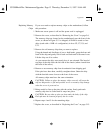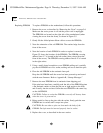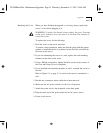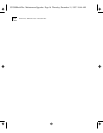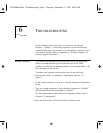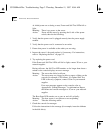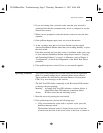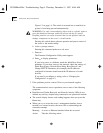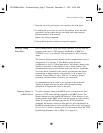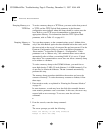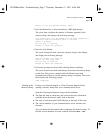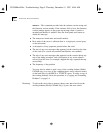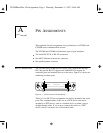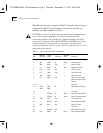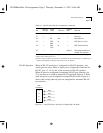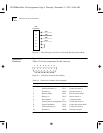
Memory Dump Procedures 6-5
1 Reset the server by pressing the reset switch on the front panel.
2 If resetting the server does not resolve the problem, check the cable,
transceiver, and any other devices associated with connecting the
Ethernet interface to the network.
Replace any faulty component.
3 If the problem persists, contact your network supplier.
Memory Dump
Procedures
If the communications server fails during operation, you can write the
contents of the server’s CPU registers and RAM to an RBCS or
TFTP/FTP server, or to diskettes. This procedure is called a memory
dump.
The memory dump procedure depends on the communications server’s
configuration. For example, if Auto-Reboot in the firmware
configuration is set for “Upload then reboot,” the memory dump to the
network is automatic. If Auto-Reboot is set to “Boot monitor,” the
communications server enters monitor mode and waits for commands.
You must attach a terminal to the console port and enter the upload
command
up
to dump memory to the network, or
du
to dump it to
diskettes. If Auto-Reboot is set to “Reboot,” no memory dump is
performed, and the contents of memory are overwritten.
A communications server crash is also reported in the audit trail.
Technical support staff can use audit trail and memory dump
information to diagnose the cause of the crash.
Dumping Memory to
an RBCS Server
To write a memory dump to the RBCS server, you must set the boot
protocol to TFTP and establish a safepath on the RBCS server. The
default safepath is to the data/DUMP directory. If this directory is not
already present on the RBCS server, you must create it for the memory
dump. If you specify a different path for the TFTP Upload Path
parameter, the memory dump uses that path. For more information on
the RBCS safepath function, refer to the
Remote Boot and Configuration
Services User’s Guide
or release notes. For information about the TFTP
Upload Path parameter, refer to Table 4-3 on page 4-11.
CS2500BookFile : Troubleshooting Page 5 Thursday, December 11, 1997 10:44 AM



